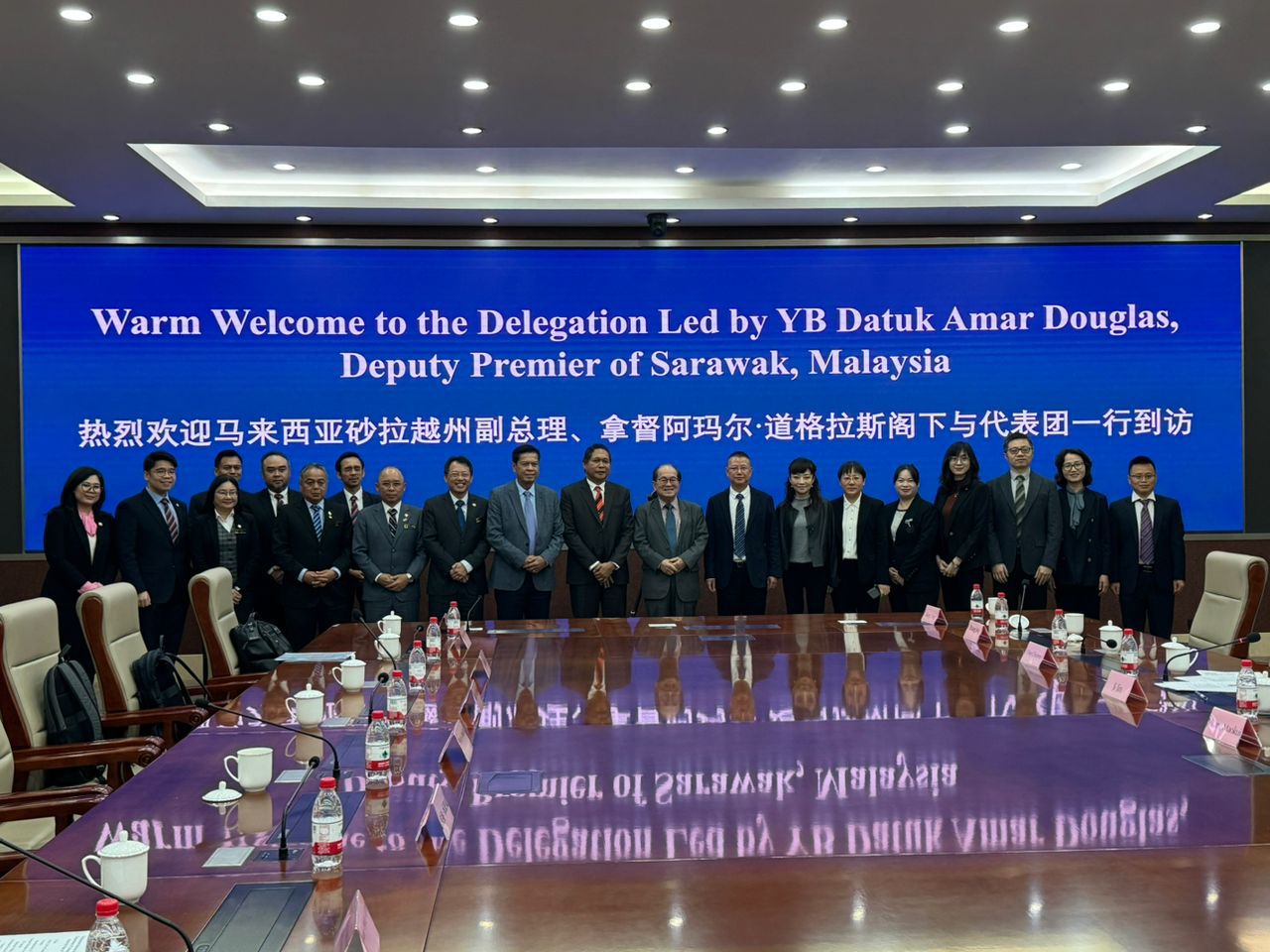
CHINA: Sarawak holds steadfast in pursuing a development pathway that balances modernisation with conservation.
Sarawak Deputy Premier, Datuk Amar Douglas Uggah Embas made the remarks after concluding a courtesy call and technical briefing hosted by the Sichuan Provincial Department of Transport in Chengdu on Tuesday.
“We look forward to enhancing cooperation with Sichuan to advance sustainable, smart, and resilient infrastructure for the benefit of our people,” he said.
This engagement marks another significant step in strengthening Sarawak–Sichuan collaboration towards shared objectives in sustainability, technological exchange, and environmentally responsible development.
In his remarks, Datuk Amar Douglas Uggah expressed sincere appreciation for the warm hospitality extended by the Sichuan authorities.
“Sichuan’s success in developing an extensive and award-winning road network across complex terrains offers valuable insights for Sarawak as we continue to advance our infrastructure and connectivity agenda under the Post-COVID-19 Development Strategy (PCDS) 2030,” he stated.
The delegation was warmly received by Deputy Director General of the Sichuan Provincial Department of Transport Wang Maokui, together with several divisional directors.
Following the briefing, the Sichuan Provincial Department of Transport elaborated on China’s and Sichuan’s rigorous ecological regulations, which ensure that infrastructure projects minimise or prevent environmental degradation throughout the planning and construction phases.
Reaffirming Sarawak’s commitment to ecological conservation and environmental sustainability, Datuk Amar Douglas Uggah emphasised that these principles are integral to the state’s PCDS 2030, which positions sustainability as a central pillar of development.
“Sichuan’s ability to harmonise infrastructure growth with environmental protection provides valuable lessons for Sarawak. We aspire to adopt and adapt such best practices to ensure that our infrastructure and road connectivity projects meet the highest ecological standards,” he added.
He noted that the visit underscores Sarawak’s steadfast commitment to fostering closer cooperation with Sichuan, particularly in the domains of infrastructure development, technological advancement, and sustainable connectivity.
During the session, the Sichuan Provincial Department of Transport presented an overview of its mandate, key achievements, and strategic initiatives, and is responsible for the planning, construction, and management of roads, highways, rural roads, railways, waterways, expressways, and ports across the province.
The province currently ranks first in China in total road mileage, with approximately 418,000 kilometres of highways, including about 369,000 kilometres of rural roads and 10,310 kilometres of expressways, the latter ranking third nationally.
Sichuan’s challenging terrain, shaped by the Tibetan Plateau and the Yangtze River basin, has historically posed formidable transportation difficulties, once poetically described as ‘the road leading to Sichuan is more difficult than the road leading to the sky’.
Despite these geographical constraints, the province has developed one of China’s most advanced and environmentally responsible transport systems, featuring award-winning expressways and pioneering bridge, tunnel, and elevated road technologies designed to uphold both safety and ecological integrity.
In addressing challenges such as increasing construction costs, complex geology, and ecological preservation, the department highlighted its commitment to sustainable planning, intelligent monitoring systems, and green engineering methodologies.
The Minister for Infrastructure and Port Development further observed that Sarawak’s engagement with Sichuan is both timely and strategic, given the similar geographical and environmental contexts of the two regions.
The Sichuan authorities shared that their planning framework integrates Building Information Modelling (BIM), Geographic Information Systems (GIS), and Artificial Intelligence (AI)-based assessment tools to identify, predict, and mitigate potential geological and environmental risks.
Sarawak expressed keen interest in learning from Sichuan’s comprehensive ecological management system, particularly in areas of transport governance, industrial support mechanisms, and technology-driven environmental safeguards.
The Sarawak delegation was also invited to visit selected expressway sites and receive further briefings on Sichuan’s planning systems, construction technologies, and environmental protection frameworks. -UKASnews

